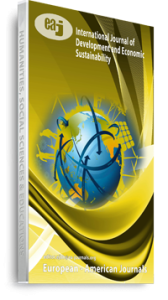One of the reasons for financial liberalization is to adequately mobilize domestic savings in developing countries. Hence, this study investigated the existing relationship between financial liberalization and domestic savings in Nigeria. In achieving this, contemporary econometric approach involving unit root test, co-integration test and error correction model was adopted to analyze the time series data from 1970 to 2015. The study used interest rate spread and financial liberalization index as measures of financial liberalization. It used credit to the private sector over GDP and the number of bank branches over the population to measure financial deepening and financial inclusion respectively. The findings revealed that per capita income and financial deepening were the two factors that affected domestic savings in Nigeria significantly as against interest rate which was widely viewed as the major factor affecting savings mobilization in Less Developed Countries. The study recommended increase in the existing level of per capita income which could be achieved by upward review of wages and salaries of workers every three years. Monetary authorities should use moral suasion to encourage microfinance banks and commercial banks to establish branches in rural areas to help further reduce the population of unbanked Nigerians and ensure greater financial deepening. Monetary authority should ensure that interest rate is determined by market forces to reflect the true depth of the Nigerian financial system and thereby reduce the interest rate spread. The sustenance of CBN autonomy was equally recommended as a key to ensuring financial system stability
Keywords: Domestic Savings, Financial Inclusion, Financial Liberalization, Financial deepening, Nigeria

